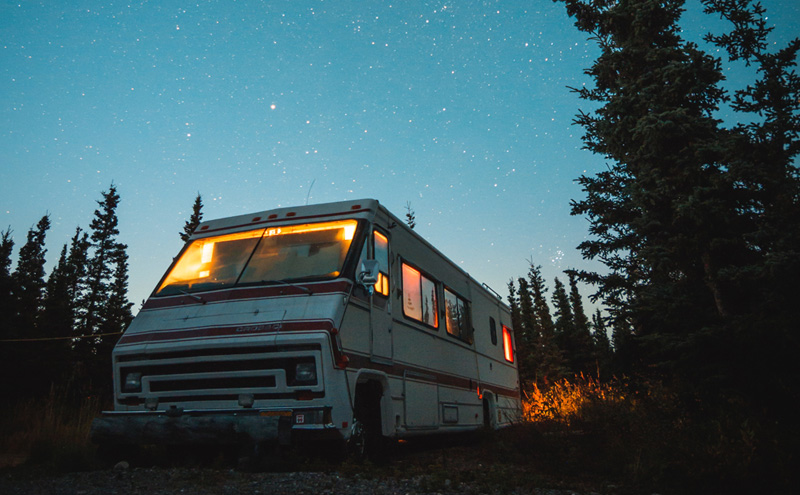You can expect to fit in most campgrounds and national parks as long as your RV length is a maximum of 35 feet or less. At this length, you'll be able to find enough spots big enough to fit your rig in most parks across the country.
If you get beyond that length, you may eliminate your ability to stay at a good amount of parks and campgrounds.
State and National Park Lengths
The following lengths are averages of what you can find in national park campgrounds within the United States.
RV Length | Percent of National Parks |
|---|---|
RVs up to 12 feet | Almost all campgrounds unless they do not allow RVs and are tent only. |
RVs up to 19 feet | 98% of all national park campgrounds. |
RVs up to 25 feet | 93% of all national park campgrounds. |
RVs up to 29 feet | 84% of all national park campgrounds. |
RVs up to 32 feet | 81% of all national park campgrounds. |
RVs up to 35 feet | 73% of all national park campgrounds. |
RVs up to 37 feet | 60% of all national park campgrounds. |
RVs up to 40 feet | 53% of all national park campgrounds. |
RVs up to 41 feet | 7% of all national park campgrounds. |
For RVs over 37 feet, very few parks can accommodate for this size. You'll want to book well in advance to secure a spot.
At the end of the day, if you can downsize, you'll be able to fit in more state and national parks.
If your RV is too big, you can also opt to stay outside the parks at independent or private campgrounds. Yet, being able to actually stay inside the state and national parks is a much better experience. Otherwise you're only able to drive around for the day.
Not to mention, you're usually able to get a better deal at the state and national parks.
How Do You Measure An RV?
Step 1: Take out a tape measure.
Step 2: Go to the front tip of the ball hitch on a trailer (or front bumper).
Step 3: Walk to the end of the rear bumper.
Now you've got your RV length.
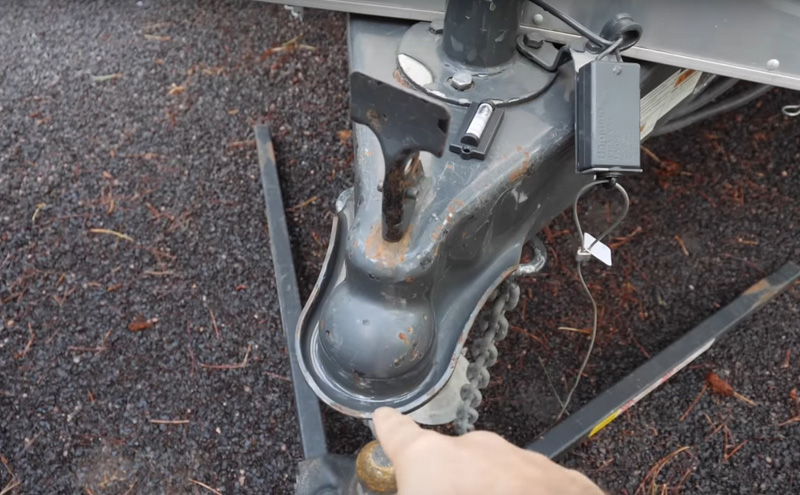
Tip of ball hitch
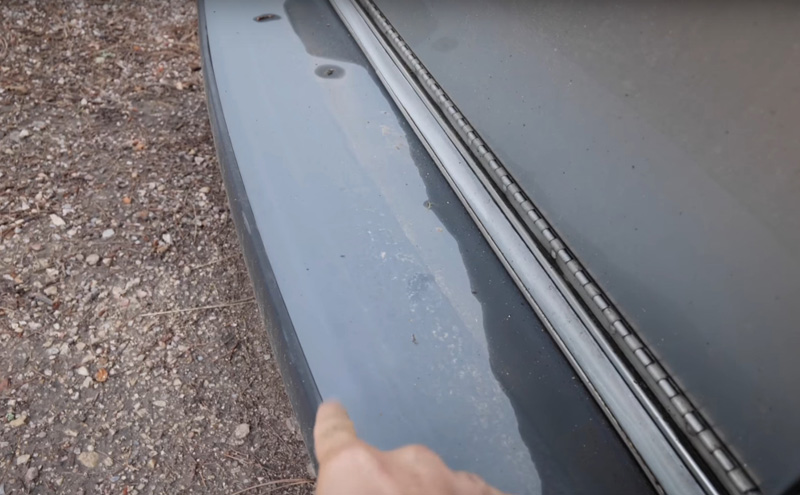
Rear bumper
It helps if you have two people to do this so each of you can hold an end of the tape measure.
When putting together your measurement numbers make sure to combine the length of the tow vehicle as well. You need to add the length of the RV and vehicle together.
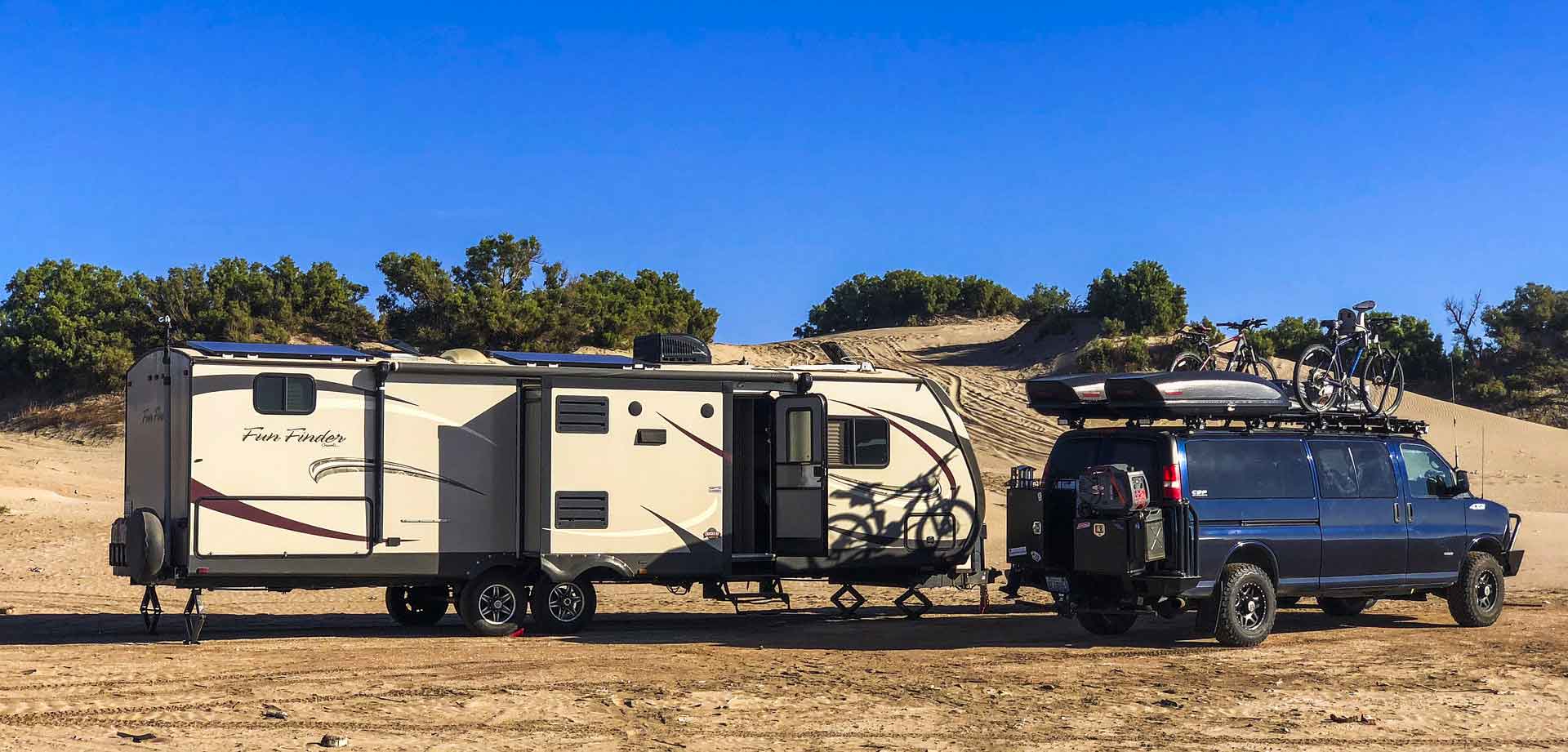
For example, a travel trailer and cargo van would be added together for a total combined length.
Some RV companies will mess up the measurement numbers for the length of their RVs. Make sure to get your tape measure out to get the actual number. In many cases it will be longer than what the manufacturer has listed.
Why Is Length a Problem In State and National Parks?
Length is not only a problem in state and national parks, and rather an issue for a lot of different places. Many of these campgrounds were built decades ago before the enormous crew cabs and fifth wheels available now. Back in the day there were only cars, trucks, vans, smaller campers, and tents.
Due to this, there are a few common reasons to why length may restrict your ability to camp in some parks.
Reason #1 - Switchbacks on the road
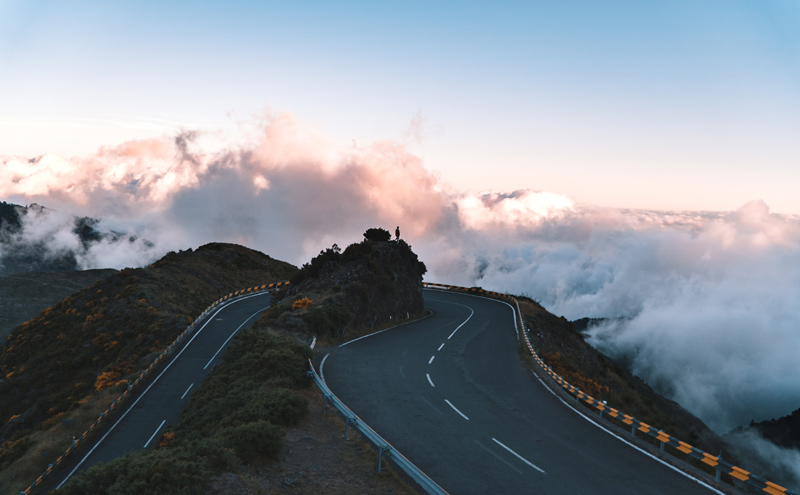
Switchbacks are tight 180° bends in the road or path, typically leading to the side of a mountain.
These can sometimes prevent you from getting to the campground if your camper is too big to fit around the tight corners.
In some parks there may even be spots of the campground where a large rig can not fit through. Many parks have tight turns where the campsites are located to fit as many spots as they can in a small area.
Or when they were built, they never had the infrastructure in mind for the larger campers available now.
I know of a few parks in Florida where there's a small bridge you have to go over before entering the park. These bridges have weight limits and can prevent some heavier or longer RV's from getting in at all.
You may also want to consider your camper weight before deciding which RV to buy.
Reason #2 - The sites are not long enough
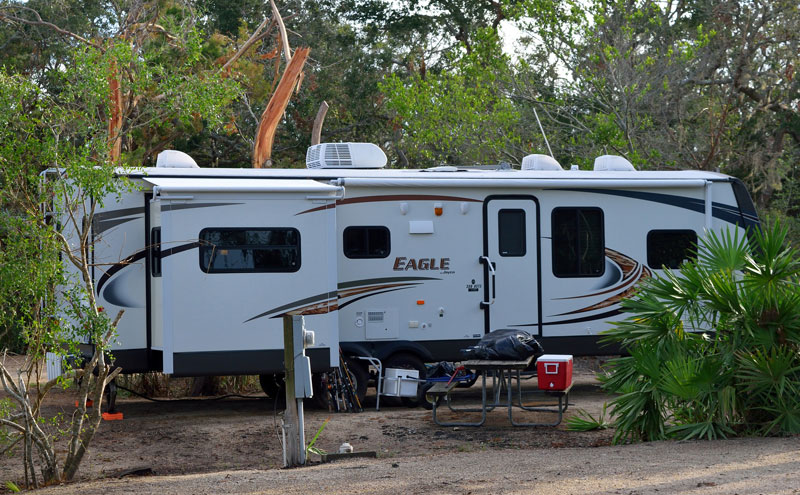
Most campsites will be large enough to fit your rig. However, some may not be long enough or have low hanging trees.
In some cases this can prevent you from parking your RV on the campsite. Then you'll need a longer or bigger site to fit.
What's The Best RV Length?
Finding the right RV length for you does depend quite a bit on your personal needs. There really isn't one specific length that's best for everyone looking to a buy an RV. Instead, you have to ask yourself the right questions to figure out what's best for you.
Your ideal RV length may even change over time depending on if you have kids or where you plan to camp. It could even vary based on your experience with camping, and what you look for in an RV.
For example, if you've got to have that washer and dryer in your RV. This will make you need a bigger rig and longer length to have the space for it.
Campsite Availability
Remember that you can always fit a smaller RV into a larger campsite and not the other way around. I've had a few times where a friend could not come along on a camping trip since their RV was too large for the remaining available campsites.
This is something to consider when traveling as you may not always have the first pick on which sites are open. Unless you plan way ahead for your travels and book early, you may end up not being able to go to some campgrounds.
Consider Renting a Camper or RV Before You Buy
Knowing that "perfect RV length" for you can be difficult to pinpoint. I'd recommend renting before you buy to get a feel for what size and type fits best for you. You may try out a travel trailer and find out you'd rather prefer a driving RV.
If you're looking for a place to rent an RV, I suggest you take a look on Outdoorsy. It's an excellent place to find local RV and camper rentals.

